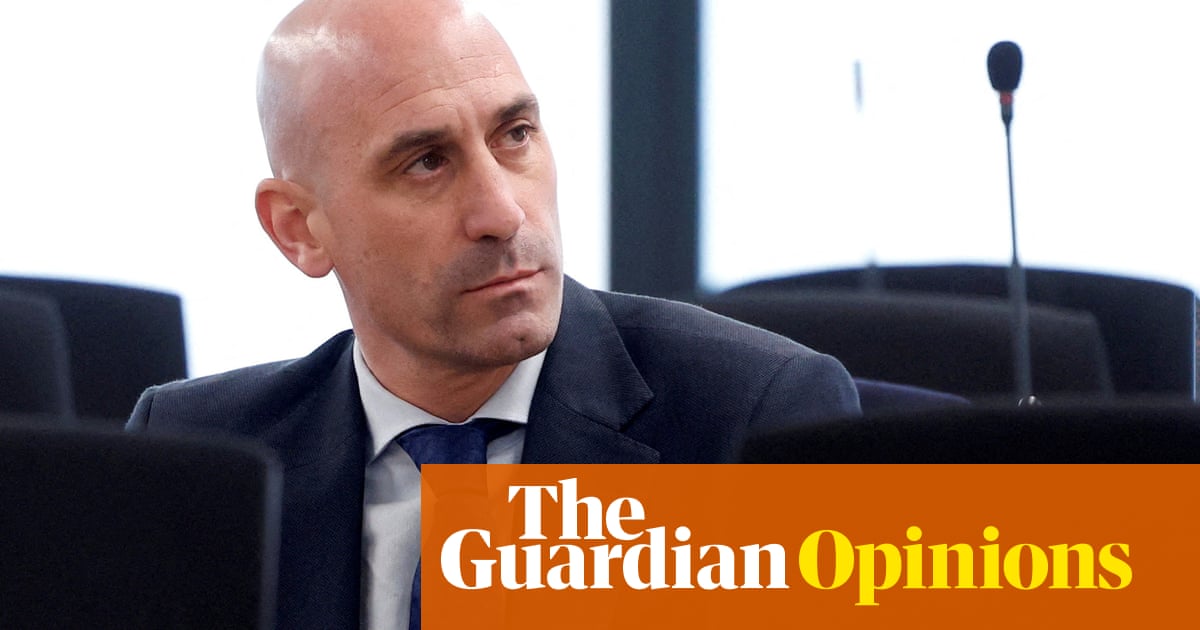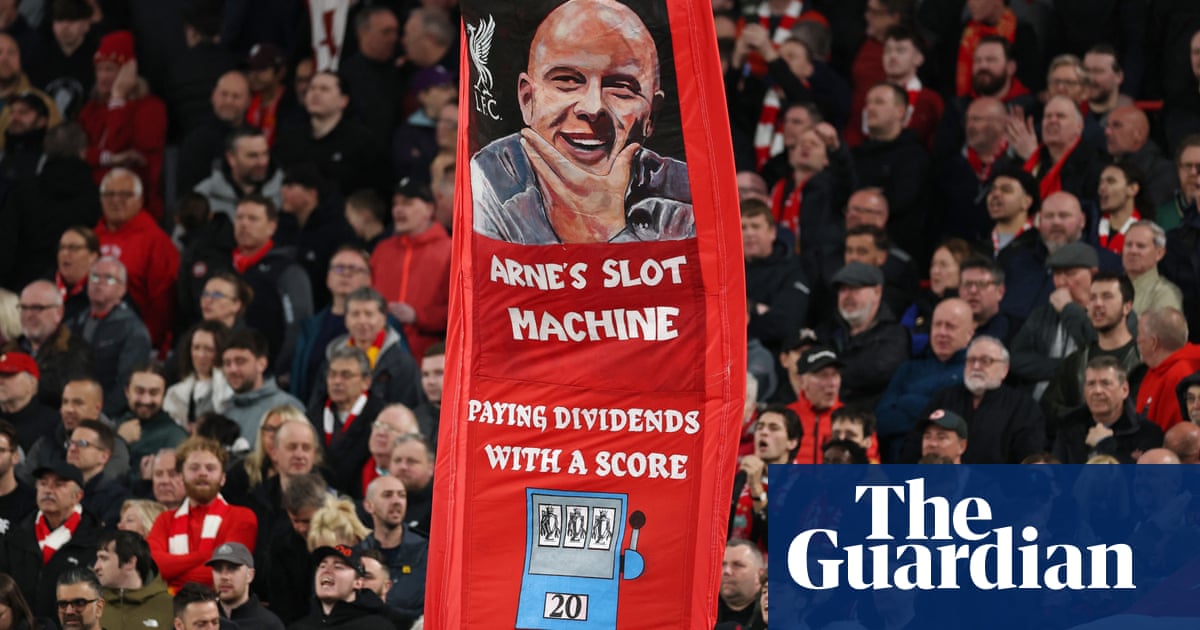The verdict delivered to the disgraced former president of the Spanish football federation Luis Rubiales is a victory, but one that leaves a bitter aftertaste.
The 47-year-old was found guilty of sexual assault on Thursday for a non-consensual kiss planted on the Spain forward Jenni Hermoso during the 2023 World Cup final medal ceremony. The result is a fine of more than €10,000, a ban from going within 200 metres of Hermoso or communicating with her and €3,000 in compensation to the striker.
However, Rubiales escaped a custodial sentence and was acquitted of a charge of coercion, alongside three co-defendants, for allegedly having put pressure on Hermoso to say the kiss had been consensual.
That is the partial cause of the bitter aftertaste. Irene Paredes, one of the players to testify alongside Hermoso, said of the ruling: “I think the conviction for sexual assault is correct. What I find somehow striking and strange is that there is no conviction for coercion.” Hermoso’s lawyer has said she intends to appeal.
Rubiales, too, has said he will appeal. Many will think that the punishment was light, with a fine that is about 1.5% of what his €675,762 salary was. His three-year ban from all football-related activity will expire on 30 October next year after his appeal against it was rejected by the Court of Arbitration for Sport yesterday.
It has been a 550-day battle to reach this point, 550 days between the kiss that shocked the world and overshadowed a heroic and historic first World Cup win for Spain and the verdict’s delivery. For 550 days, Hermoso, despite being a victim of sexual assault, has been under intense pressure. Pressure and scrutiny, for pushing back in a patriarchal society still heavily influenced by the machismo values encouraged under the dictatorship of Franco where women were expected to stay at home and have children and where feminism was essentially co-opted by the regime to encourage a faithful adherence to domesticity.
Today, attempts to grapple with the issue of sexual assault have had mixed results. The new Sexual Consent law (also known as the “only yes means yes” law) introduced in 2023, while progressive, inadvertently allowed almost 1,000 prisoners to have their sentences reduced, forcing the prime minister to publicly apologise. The UN special rapporteur Reem Alsalem “expressed concern” over the new law, called for stronger protections for the victims of sexual assault in Spain and said that “for a country with a high rate of femicide, reducing the sentences of those found guilty of perpetrating sexual violence – against women and children – sends the wrong message about the State’s priorities when it comes to ending violence against women and children and fighting impunity for such crimes”.
The future doesn’t look brighter for women and girls in the country either, with a “significant” rise in sexual assaults by minors, including several high-profile gang rape cases, according to the prosecutor in charge of minors, Eduardo Esteban. Against this backdrop, the conviction of Rubiales for sexual assault, after a trial reported on around the world, is a huge step forward. It sends a powerful message not just about consent but about how seriously women are taken. But what was the cost? Hermoso said that the incident and fallout had “tainted one of the happiest days of my life” and several of her Spain teammates testified to the huge emotional impact it had had on her.
Hermoso was in a position of power, a World Cup winner and Spain’s record goalscorer. She, along with many of her teammates, had complained about the federation’s treatment of the squad. It required the assault by her boss being broadcast live around the world for people to take seriously that the environment around the team was not appropriate. Even then she needed to endure a trial and hope the judge would deliver a guilty verdict. What about the women who don’t have their assaults broadcast live around the world and lack the international profile of a successful elite athlete? What chance do they have of justice?
after newsletter promotion
There will still be a vicious, vocal and not small minority who don’t believe Hermoso, and a layer within that who will cast a permanent shadow on her career, commenting on social media posts, news articles and more, denigrating her. She has paid a heavy and long-term price for the stand she has taken. The easier option would have been to toe the line, lie, say it was consensual, and have the world move on. Except, the Spanish women’s national team have a history of struggle for better conditions and treatment behind them.
Time and again the team have butted heads with their federation and lost, their claims dismissed, players forced out and small rebellions brutally quashed. This time, with Hermoso’s assault viral, there could be no dodging when she sacrificed her mental wellbeing and pursued the issue.
It went beyond her as an individual, her case enabling the team’s ongoing and long-term issues with a patriarchally run federation to be brought to the fore. Finally, they would be believed. That is where the rest of the bitter aftertaste comes from: the price Hermoso and the team have had to pay for minimal justice.









